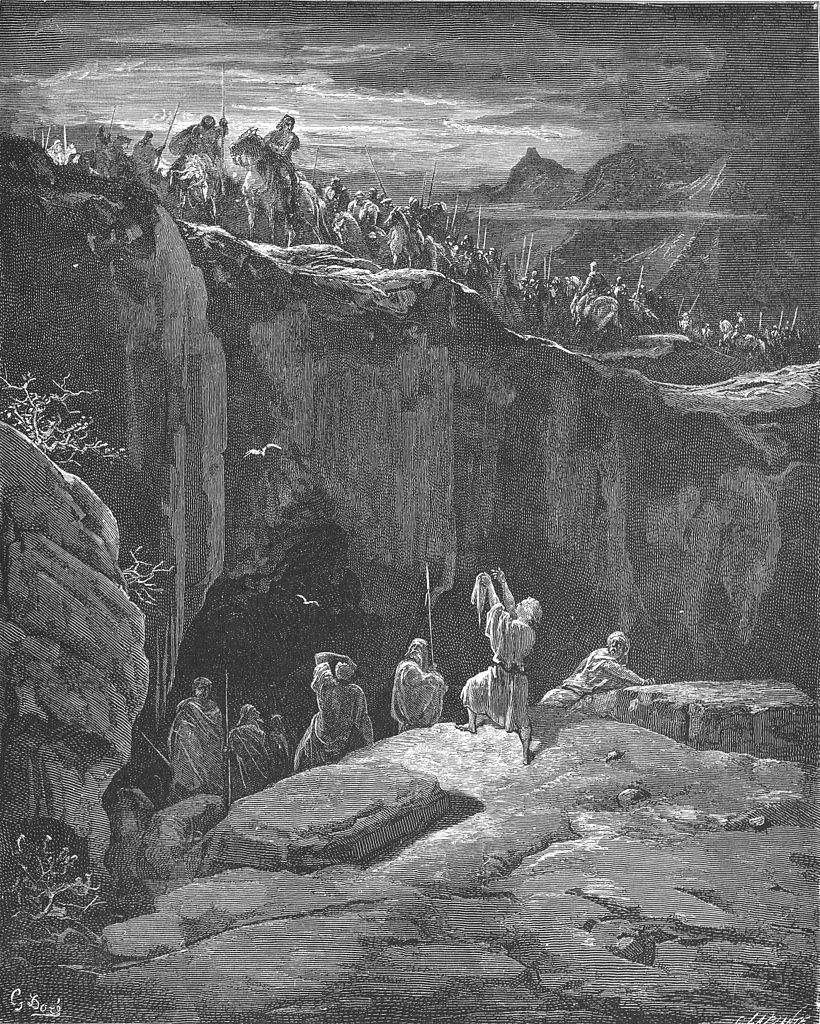David sparing Saul by Gustave Doré, 1 Samuel 24, Bible.Gallery
Artwork Description

In this illustration, we encounter the same characters as in the previous one, but the circumstances have taken a markedly different turn. Here, Saul was seeking David's life, while David magnanimously refrained from taking Saul's. The situation unfolded as follows: The king learned that David had taken refuge in Engedi and set out in pursuit with a contingent of three thousand men. In a twist of fate, he unknowingly placed himself entirely at David's mercy. Seeking respite from the midday sun, he entered the very cave where David and his men were concealed.
David's comrades saw this as a providential opportunity to end the conflict by assassinating Saul. However, David could not bring himself to view it in that light. He chose to await God's timing, refusing to let it be said that he had ascended to the throne through the murder of his predecessor. Instead, he contented himself by snipping off a section of Saul's robe, an act he could perform without disturbing the king's slumber. When Saul awoke and left to rejoin his troops, David followed and called out, "My lord the king." He captured Saul's attention and earnestly professed his innocence of any sinister intentions. As proof, he presented the skirt he held in his hand, which he had taken from Saul's robe when he could just as easily have taken Saul's life. Saul appeared to be moved with remorse and withdrew his men, but David was not prepared to entrust himself to someone as impulsive and distrustful as Saul. He returned to the cave. This encounter left them much as it had found them, but David had demonstrated exceptional self-control and forbearance, and Saul had let yet another opportunity to abandon his malicious pursuit slip away.
The vivid scene is skillfully depicted in the illustration. Palestine boasts numerous locations where individuals can converse across deep ravines that would take hours to circumnavigate. Consequently, the artist situates the king and his assembled host atop a precipitous cliff, while David stands on a lower elevation in the rear, accompanied only by a few of his companions. Displaying the remnant of the royal garment, David calls out, "My father, see, yes, see the skirt of thy robe in my hand: for in that I cut off the skirt of thy robe and killed thee not, know thou and see that there is neither evil nor transgression in mine hand, and I have not sinned against thee; yet thou huntest my soul to take it."